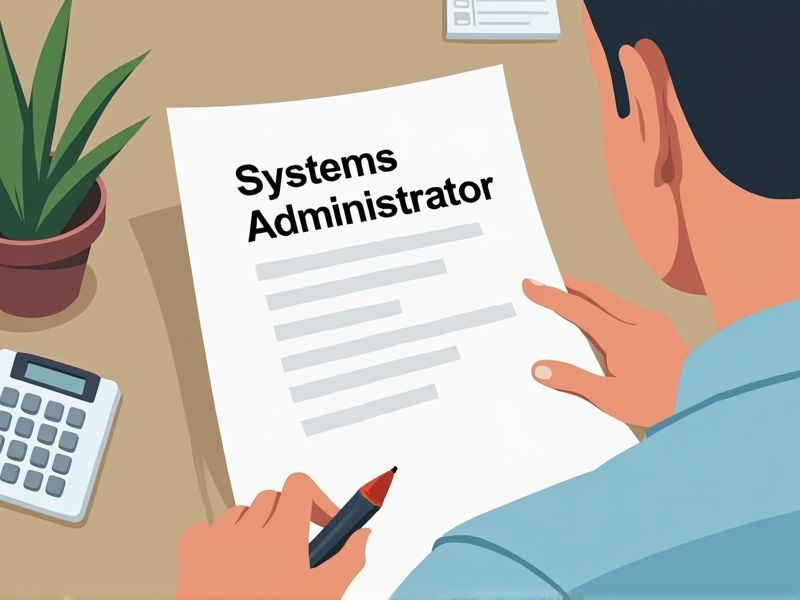
Organizations depend heavily on their IT infrastructures for daily operations, making the role of a Systems Administrator pivotal. Certifications validate the skills necessary to manage and secure these complex systems, ensuring high reliability and performance. With rapidly evolving technologies and security threats, certified administrators are better equipped to implement effective solutions. Consider acquiring these essential certifications for a successful career as a Systems Administrator.
Red Hat Certified System Administrator (RHCSA)
Obtaining the Red Hat Certified System Administrator (RHCSA) certification demonstrates proficiency in managing and operating Red Hat Enterprise Linux environments, a skill crucial for systems administrators handling enterprise-level infrastructure. Such certification serves as a benchmark for employers, ensuring that candidates possess the necessary technical skills and problem-solving capabilities. Systems administrators with RHCSA can effectively handle tasks such as system updates, network setups, and file management, reducing operational risks and enhancing system performance. With widespread adoption of Linux in various organizations, RHCSA certified administrators are better equipped to ensure seamless integration and optimal system uptime.
Microsoft Certified: Azure Administrator Associate
The Microsoft Certified: Azure Administrator Associate provides a systems administrator with a validated competency in managing Azure resources, which aligns with the increasing industry reliance on cloud services. Mastery of Azure infrastructure optimizes system performance and cost-effectiveness, crucial for competitive businesses. The certification equips administrators with skills to implement security best practices, safeguarding organizational data against potential cyber threats. These credentials enhance a system administrator's value to employers, reflecting dedication to professional development and cloud expertise.
CompTIA A+
CompTIA A+ certification provides foundational IT knowledge crucial for systems administrators. This certification covers essential concepts like hardware management, which is vital for troubleshooting system issues effectively. It also encompasses networking fundamentals, enabling administrators to maintain secure and efficient IT environments. Employers often view the CompTIA A+ as a baseline credential, influencing hiring decisions and career advancements for aspiring systems administrators.
CompTIA Network+
CompTIA Network+ certification provides a strong foundation in networking concepts, critical for Systems Administrators to effectively manage and troubleshoot network issues. Systems Administrators often handle the installation and configuration of network infrastructure, making the practical skills acquired through Network+ essential. Employers view the certification as a validation of technical proficiency, enhancing job prospects and career advancement for Systems Administrators. This certification also ensures that Systems Administrators understand networking protocols and security concerns, crucial for maintaining robust and secure IT environments.
CompTIA Security+
CompTIA Security+ validates a foundational level of cybersecurity skills necessary for a Systems Administrator, ensuring they can manage and mitigate security risks effectively. Organizations often require Security+ certification to align with compliance standards, as it demonstrates an understanding of core security principles. A Systems Administrator with Security+ certification can better implement security protocols, protecting systems from unauthorized access. As cyber threats become more sophisticated, having Security+ certification helps maintain robust security measures in increasingly complex IT environments.
Linux Professional Institute Certification (LPIC-1)
Achieving the Linux Professional Institute Certification (LPIC-1) demonstrates a foundational competence in Linux system administration, which is crucial for managing modern IT infrastructures. Many organizations prioritize employees with the LPIC-1 credential because it validates technical skills in system configuration, maintenance, and troubleshooting. The certification ensures system administrators can effectively deploy and tailor Linux systems, aligning with business and technical needs. Possessing LPIC-1 elevates career prospects and often leads to increased job security amidst a competitive tech landscape.
VMware Certified Professional - Data Center Virtualization (VCP-DCV)
Systems administrators often deal with managing complex virtual environments; earning a VMware Certified Professional - Data Center Virtualization (VCP-DCV) credential equips them with the necessary skills to design and implement VMware infrastructures effectively. The certification validates their expertise in troubleshooting and optimizing virtual machines, which can reduce operational downtime and enhance system performance. Organizations increasingly rely on virtualized systems for scalability and efficiency, making certified professionals more valuable and sought-after. VCP-DCV-certified individuals can improve IT infrastructure management, resulting in cost savings and greater resource utilization for their employers.
Cisco Certified Network Associate (CCNA)
Systems Administrators manage and configure networks, necessitating a solid understanding of networking that the CCNA provides. The CCNA certification ensures Administrators are equipped with skills to maintain network infrastructure, enhancing overall network performance. Employers often view the CCNA as a benchmark of competence, increasing job prospects and advancement opportunities. Certification validates capability in troubleshooting and security, critical areas in dynamic IT environments.
Amazon Web Services (AWS) Certified SysOps Administrator - Associate
Achieving the AWS Certified SysOps Administrator - Associate credential equips Systems Administrators with validated skills in deploying, managing, and operating scalable, highly available, and fault-tolerant systems on AWS. The certification demonstrates a professional's ability to implement and control the flow of data to and from AWS, enhancing system efficiency. It also signifies a thorough understanding of AWS operational best practices, which directly reduces infrastructure costs and optimizes system performance. Employers often recognize this certification as a benchmark for hiring, indicating the individual's proficiency in automating the deployment, management, and security of cloud environments.
Google Cloud Certified - Associate Cloud Engineer
Obtaining a Google Cloud Certified - Associate Cloud Engineer certification equips a Systems Administrator with the essential skills to efficiently manage cloud-based infrastructure. Cloud proficiency reduces downtime and enhances system reliability, which is crucial for business continuity. The certification validates an administrator's ability to automate and optimize processes, leading to cost savings and increased operational efficiency. Knowledge of Google Cloud's security features helps safeguard organizational data, aligning with compliance requirements.
Summary
When you obtain certifications as a Systems Administrator, your technical skills and credibility will increase significantly. Employers often view certifications as a reliable indicator of specialized knowledge and problem-solving abilities. This recognition can lead to new career opportunities and potential salary advancements. The specialized expertise gained from certifications enhances your ability to manage complex IT environments effectively.
